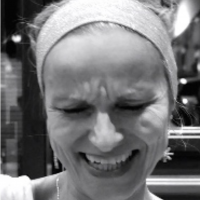I’m fuming, outraged, simply speechless.
My whole being is in a state of freeze. I just can’t believe it. Only she knew my secret and that’s exactly where she targeted me. What a repulsive betrayal. A most trusted friend has just turned into an enemy. It can’t get any worse than this.
Wrapped in motionless silence, there’s one single thought that stands out with passionate clarity within this emotional devastation.
I will never forgive you!
And so the bitter wheel starts spinning. With each resentful thought, with each vengeful inner dialogue it gains momentum. I gladly succumb as emotional gravity takes its course, and its toll.
What a sweet relief to reduce that friend to this one distasteful offence. No matter how many years of trusted friendship lie behind us, within an instant there’s nothing left to cherish.
This is not going to end well. It’s exhausting, and it turns us into resentful, diminished versions of ourselves.
But how can we break free from this destructive dynamic that so easily turns into an obsession?
We may not want to hear this:
We have to approach the very thing we have vowed against, forgiveness.
Forgiveness requires a brutally counterintuitive response to the hurtful experience: relaxing clenched fists in an effort to let go, and feeling the hurt while resisting the urge to armour up.
How can this possibly be done? What does it take to let go?
This burning question led me to research the Facilitating and Obstructing Factors of Forgiveness in depth, retrieving information from counsellors from around the globe. These people are in the privileged position of witnessing people letting go on a regular basis. The findings clearly confirm that forgiveness is a universal phenomenon with highest impact on our well-being.
There is a wide agreement that forgiveness is a process that starts with the conscious choice of the wounded. This decision must mature genuinely and cannot be pushed without compromising its progression.
Forgiveness unfolds in stages and leaves us changed, as we need to modify our inner realities for the rejected experience to find its meaningful place.
There are some distorted views around forgiveness that I’d like to address here.
Forgiveness is not reconciliation.
We can find a way to make peace with the past, while deciding not to get back in touch with the person who wronged us.
Withholding forgiveness is a risky way of trying to get even.
The offender may not even care whether or not we forgive. The one who will suffer is me. Holding grudges is a major source for psychosomatic problems and unhappiness. Nelson Mandela so aptly expresses it,
“Resentment is like drinking poison and then hoping it will kill your enemies.”
Forgiveness is, first and foremost, for our own good. If we don’t find a way to let go, we will remain connected to the perpetrator through a bridge of hatred. The more intense the emotions, the stronger the bond. Forgiveness is the only way to free ourselves and move on.
Forgiving without allowing for the whole extent of pain and devastation to emerge, is called fake forgiveness . “It’s okay honey, I forgive you!” Fake forgiveness is listed as a serious mental health threat, as it weakens the victim’s self-esteem and self-worth and perpetuates an unhealthy situation.
“Forgiveness is only properly in place where initially resentment is properly in place.”
~ J.G. Murphy (1982).
Forgiveness can be hard work. But looking at its abundant reward, it’s easier to understand why:
Forgiveness heals our wounded self-image and rebuilds our self-worth, it restores inner peace, makes us stronger and wiser, increases our capacity to love, and leads to new freedom.
Contemplating these impressive benefits has proven to be a helpful first step out of the bitter pit.
In order to give some orientation to those striving to let go, I have developed the following eight-step guide toward forgiveness. It is based on research and my personal experience:
1) Be safe.
The first thing we should aim at is getting ourselves out of the danger zone and making sure the hurt is part of the past; we can’t really forgive something that we expect to keep happening.
2) Dive in.
Allow yourself to remember, feel and understand what has happened to you. Let it all emerge. No holding back. Get all the support you can during this stage, a trusted friend, a therapist, a coach. It’s the most painful stage in this process, where we easily divert into fake forgiveness. Be gentle, don’t push yourself. This needs time, depending on the severity of the offence. But remember, it’s just a transitory stage as we move toward freedom.
3) Expand.
Once nothing new comes up, all has been expressed, cried over, shouted about, then we can start moving forward and we can imagine the offender’s situation. What may have led him/her to do this? What would cause a person to act like this? We are all houses of many rooms, and potential offenders as well as victims. This is important to acknowledge here, as difficult as it may seem.
4) Reach out.
Do you feel the need for reaching out and confronting the perpetrator with the injustice and the pain he/she has caused? This can be a powerfully strengthening experience. However, this could also backfire if the wounded doesn’t feel strong enough to handle a possibly hurtful response. Discuss this with a trusted person.
5) Empower.
Ask yourself the most outrageous questions. Could I have had a part in this offence? As innocent as we may be, often we can see in retrospect that we did something that triggered the hurtful action. Understanding the dynamics of what happened will help us to regain a sense of control and power.
6) Relinquish.
If you believe in God or in a higher power, you may be able to trust that justice will be done eventually, no matter how humanly impossible this may seem at the moment. This trust has been found to help victims in the process of letting go.
7) Persevere.
Be patient and hold on to your decision to let go. Time is an important factor here. This process will move you through ups and downs; sometimes you may even wonder if you are moving at all.
8) Celebrate.
Over time the intensity of emotions will subside until you realize it’s all gone. Not only that, by overcoming it, the initially negative experience will have turned into a source of wisdom and strength.
~ Malcolm & Greenberg (2000)
Will I ever forget what this woman did to me? More than likely, no. But, the memory has changed significantly. It has lost its emotional charge and the experience has been enriched with valuable insights.
I have come to understand that I needed her to be more mature than she is and by idealizing her I ignored some important warning signs prior to the incident. This was my part in this relational disaster.
I have come to understand that we are all houses of many rooms, fragile humans, with the capacity to quickly turn from victim to offender under the wrong circumstances. I have learned to take better care of myself and this is possibly the greatest gift coming out of this crisis.
Keeping my boundaries clear toward her, I am at peace now.
I wish her well and move on.
~
~
~
Author: Marianne Glaeser
Photo: flickr
Editor: Lieselle Davidson


 Share on bsky
Share on bsky





Read 0 comments and reply